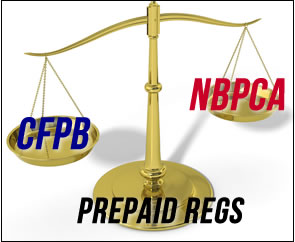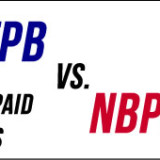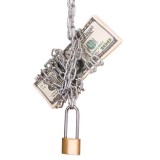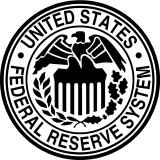When the Consumer Financial Protection Bureau (CFPB) was created in 2010, nobody expected it to play nice with the financial services industry. Authorized as part of the Dodd-Frank legislation, the CFPB was tasked with protecting consumers from predatory lending and other Wall Street abuses that spawned the Great Recession. From the very start, the financial services industry and its allies in Congress resisted the formation of the CFPB, and even successfully torpedoed the choice of now-Senator Elizabeth Warren to lead the agency. Now, a new battle is about to commence: the CFPB is gunning for prepaid regulatory changes.
In the handful of years since the CFPB began its oversight of the financial services industry, it has scored a number of consumer-friendly victories. Largely unheralded by the media, the CFPB has managed to do everything from force credit card issuers to be more transparent about the interest charges related to balance transfers to handling hundreds of thousands of consumer complaints. 
The proposals by the CFPB and the responses from the NBPCA are a classic illustration of the inherent adversarial relationship between regulators charged with protecting the interest of consumers and industry eager to help its businesses remain as profitable as possible. For example:
- The CFPB would like to apply the more rigorous regulations that apply to credit cards to certain prepaid products, especially those that allow customers to overdraft or overdraw their accounts. This application of what is known as the Federal Reserve’s Regulation Z to certain prepaid cards is opposed by the NBPCA, which says it’s the sort of restrictive regulation that limits options for consumers and may even result in customers opting for riskier products.
- The CFPB has proposed expanding the definition of what a prepaid debit card is, the result of which would be more an expansion of the number of products subject to government regulations. The NBPCA, by contrast, wants to limit the definition to only primary account transactions, which take the place of a debit card tied to a checking account.
- There is some overlap in what the industry and the government want to see in the realm of disclosure about fees. Both the CFPB want more disclosure, though the industry group wants a single template for disclosure while the government has proposed a number of them.
- Even the speed with which the government’s rules would go into effect is a matter of debate. The CFPB has said nine months is plenty of time for prepaid card issuers to adapt to the new rules while the NBPCA believes it will take between 18 and 24 months.
The final determination about the rules that will govern prepaid cards in the future is still being hashed out. 
If both happen, then consumers will have more confidence in prepaid cards generally, which is a win for both the CFPB and the NBPCA.





